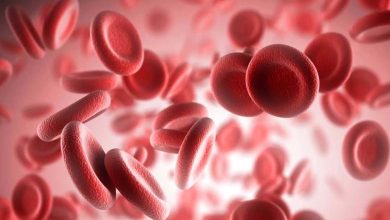The most common causes of headaches

Headaches are one of the most common health problems, and millions of people around the world suffer from them on a regular basis. The causes of headaches can vary widely. Granted, there are a few that are overlooked and yet they are capable of ruining your entire day. Why not avoid them from the start? So, if you don’t notice any change, know that you need to consult a healthcare professional to determine the underlying cause.
In this blog post, we are going to explore the 7 main causes of headaches. We hope this will help you better prevent them!
1-time Cause: Dehydration.
When we are dehydrated, our body is unable to function properly. This can lead to headaches, as well as a host of other problems. Dehydration can be caused by a number of factors. Including insufficient fluid intake, excessive sweating or vomiting. It can also be caused by certain medications, such as diuretics and blood pressure medications.
If you suffer from headaches, it is important to check your level of hydration. If you are dehydrated, the best treatment is to drink plenty of fluids and rehydrate slowly. Drink water or fluids containing electrolytes, such as sports drinks or coconut water. You can also try adding lemon slices to your water. Drink small sips of fluid frequently throughout the day, rather than large amounts all at once. Headaches caused by dehydration usually resolve within 24 to 48 hours with proper hydration. However, if your headache is severe or persists for more than a few days, it’s important to see a doctor to rule out other potential causes.
2ᵉ cause: eye fatigue.
Eye strain is a common cause of headaches, especially during prolonged periods of visual concentration. When your eyes are fixed on an object for a long time, your eye muscles start to get tired. This can lead to various symptoms. Including headaches, neck and shoulder pain, blurred vision and increased sensitivity to light.
If you experience any of these symptoms, it’s important to take a break and give your eyes a chance to rest. Taking regular breaks, adjusting the lighting in your work area, and using artificial tears can help reduce symptoms of eye strain and prevent headaches.
3ᵉ cause: Muscle tension.
Many people suffer from tension headaches, which are often due to muscle tension in the neck and shoulders. When the muscles in these areas are tight, they can put pressure on the nerves and blood vessels that run through them. This pressure can lead to pain and inflammation, which can radiate to the head and cause a headache.
Also, muscle tension can restrict blood flow to the brain. Which can also contribute to headaches. There are several ways to relieve muscle tension. Including massage, stretching and relaxation techniques.
Cause 4: Sinus congestion.
Sinus congestion occurs when the sinuses are inflamed, usually due to an infection. When this happens, the sinuses begin to produce more mucus than usual in an attempt to clear the infection. However, this increase in mucus production can lead to clogged sinuses, which causes headaches. Also, the pressure exerted by the congestion can cause pain in the forehead and temples.
If you think your headache may be caused by sinus congestion, you need to see a doctor to treat it. Antibiotics may be prescribed to clear up the infection, and decongestants may help reduce the amount of mucus produced. In severe cases, surgery may be needed to unclog blocked sinuses.
5ᵉ cause: Noise.
While there are many potential causes of headaches, research has shown that noise can be a significant trigger. Noise headaches can be caused by a single noise event or by exposure to continuous low-level noise. In either case, the resulting headache is usually characterized by a stabbing pain that begins near the temples. Although the exact mechanism is not fully understood. Noise is thought to trigger a release of stress hormones, which constrict blood vessels and cause pain.
In addition, noise can cause muscle tension and disrupt sleep. Two factors that can contribute to headaches. If you suffer from frequent headaches, pay attention to your surroundings and see if there is a correlation between the onset of your headache and exposure to noise. If so, try to avoid loud noises or wear earplugs when exposed to them.
Cause 6: Hunger.
When blood sugar levels drop, the body begins to release chemicals that can cause inflammation and pain. Also, hunger can trigger a release of stress hormones like cortisol, which can also cause headaches. Fortunately, several steps can be taken to prevent hunger headaches. Eating small, frequent meals throughout the day can help keep blood sugar levels stable.
Cause 7: Stress.
When we are stressed, our muscles tense up, causing the blood vessels in our head to constrict. This can lead to reduced blood flow and oxygen levels, which can trigger a headache. Also, stress hormones like cortisol can contribute to inflammation, which further exacerbates pain. Many effective techniques can help prevent headaches. These include meditation, deep breathing exercises and yoga. By learning to manage our stress levels, we can often significantly reduce the frequency and severity of headaches.












